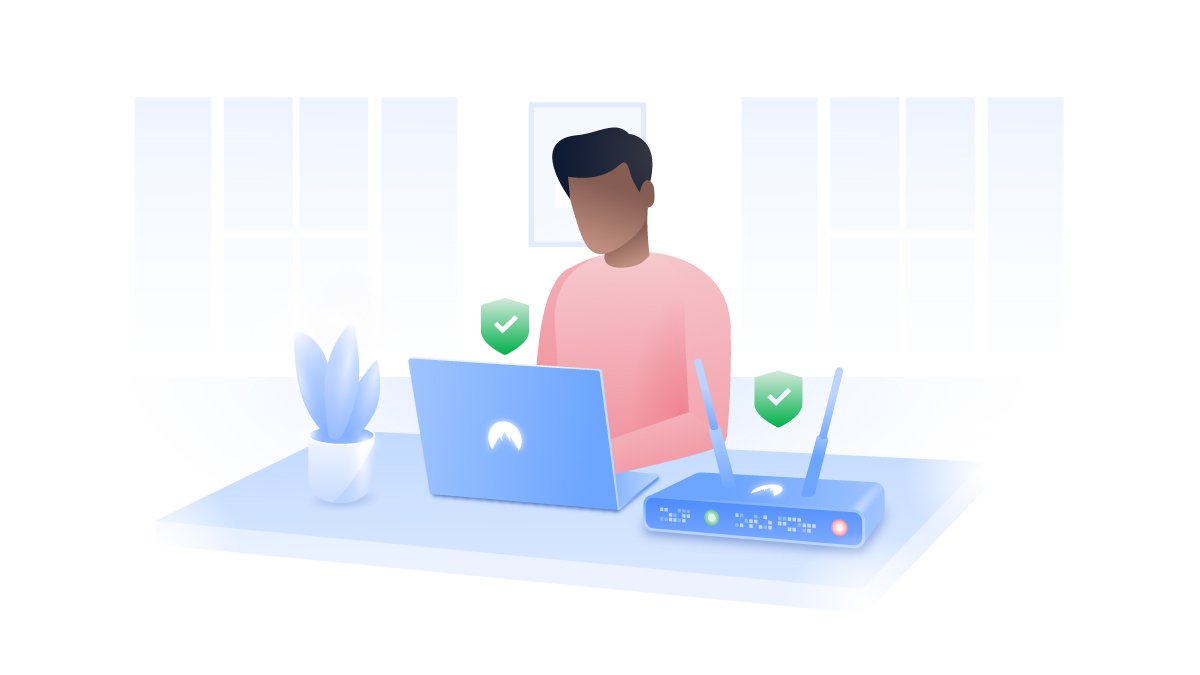VDI vs. VPN: which is best for remote workers?
With millions still working from home around the world, cybercriminals are taking full advantage of remote-work weaknesses. For anyone running a businesses, large or small, it's vital that new security practices are put in place. For that reason, many are now comparing the advantages of two different systems; VDI and VPN. So what is VDI? Is just having a VPN enough for your computer safety? And which system is right for your company?
Paul Black
Mar 11, 2021 · 4 min read

What is VDI?
VDI stands for virtual desktop infrastructure. It is a virtual network computing system, in which desktop environments are hosted on remote servers and transmitted to end-clients over the network. The clients can then access the desktop environment using specific applications and customize it.
VDI servers usually reside on either the premises of an organization or the cloud online. While each remote device in a VDI system can function independently, they can all be managed and updated from a centralized control point.
The term VDI usually refers to a specific Windows-based remote desktop system but is sometimes also applied to the general concept. Separate virtual machines with their dedicated resources improve its overall security. So all users have their dedicated stations, and this improves customization and performance capabilities.
Imagine you manage an office, and you need to use multiple desktop PCs for your employees. If each employee’s desktop has specific security configurations, you have to be able to upgrade them constantly. But with VDI, you can transfer all this into a virtual sphere and control the processes remotely.
What is VPN?
A virtual private network, or VPN, is another option worth considering for remote work. A VPN service encrypts users' traffic and masks their IPs by routing their data through a remote server. It’s a simple and hassle-free way to enhance privacy and protect your data from prying eyes. You just need to download an app to your device and connect to a VPN server.
But if this technology only encrypts one device, why do you need a VPN in an office environment? Well, you can actually configure your office router to use a VPN, so that every device connected to it is protected. You can also use a VPN to encrypt traffic within your company's network. With multiple employees using the VPN, everyone on a team can securely access private folders and the risk of endpoint breaches is significantly lowered.
Advantages and disadvantages
VDI
Pros
- Centralized system management. An admin can easily implement updates and fix issues, as they have centralized access. Also, multiple devices can be updated at once.
- More control from the admin's side. Companies have more control over the whole system and can be sure that everyone is connected. This is because the infrastructure is usually on the company's server-side. Also, it relies less on the performance of users' devices.
- It's fast as each user has dedicated resources. As each user has their own dedicated system, it can be customized according to their needs. Such adjustability makes the performance quicker.
Cons
- Expensive. VDI systems will always be more expensive than a VPN, because it requires extensive components and more complex maintenance.
- Complicated to implement and maintain. VDI setups require numerous components, complicated installation processes, and multiple machines. They’re also more difficult to update from the server-side.
- Third-party reliance. You’re still reliant on a third-party as the VDI company maintains all the infrastructure, so there is never 100% privacy.
VPN
Pros
- Cheaper. VPNs are a cheaper solution than VDI systems, and with a configured router multiple devices can be covered through a single VPN account.
- Easier to implement and use. A VPN doesn't require such extensive infrastructure within a company, so it is much easier for an organization to implement fixes and updates.
- Easily accessible for users. Employees can enjoy a simple user experience, establishing a secure connection with the click of a button.
- Fast internet speeds. Thanks to large, well-maintained server networks, most premium VPN services offer high speeds.
- Extra features. VPNs usually include many extra features. NordVPN, for example, offers an ad blocker, a Kill Switch, and much more.
Cons
- A decentralized approach. If you ask employees to install VPN software on their devices, you’re relying on them to use the service correctly, and to remember to switch it on. Some businesses may not want to put that much responsibility on individual employees.
- User devices can impact performance. As with any software, VPN applications run differently on different devices. If some employees use older hardware with outdated operating systems, VPN performance may suffer.
- Free VPNs are unreliable. Some free VPNs are unsafe and may collect or even leak your data. That’s why it’s always essential that you use a reliable, premium VPN provider.
Is VDI better than VPN?
No, a VDI system is not better than a VPN in most situations. From a user perspective, we definitely recommend a VPN as an easy-to-use and essential tool for online safety.
VDI is an excellent B2B solution, which could be more suited to large businesses. But for smaller enterprises, VPN is probably a better and more sustainable option. It costs less and it’s much easier to implement. Check our NordLayer product for a high-quality B2B security solution.
Secure your networks with NordVPN.


